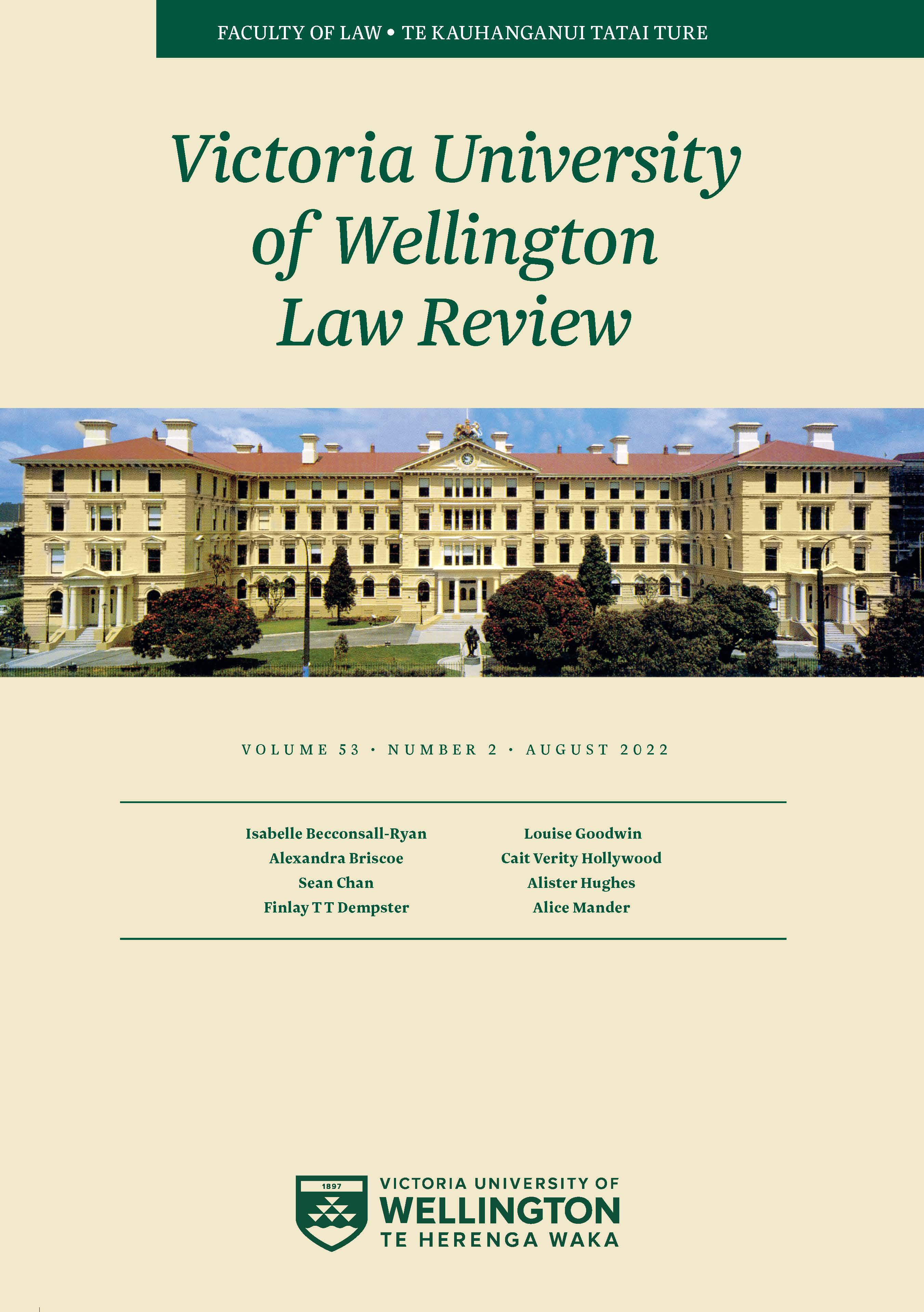The UN Security Council and Non-Traditional Security Threats: Why the Failures of the Council's Covid-19 Response Dampen Hopes for Council Action on Climate Change
DOI:
https://doi.org/10.26686/vuwlr.v53i2.7743Abstract
Since the late 1990s, the mandate of the United Nations Security Council has evolved significantly as the Council has increasingly engaged with non-traditional security threats. Such matters create economic, societal and/or political instability that places livelihoods in peril and increases risks of conflict. COVID-19 presents one such threat. This article analyses the Security Council's COVID-19 response and highlights the challenges preventing effective and efficient action, with a view to understanding the Council's present capacity to deal with emerging non-traditional security threats, particularly climate change. Key challenges include the political conflict within the Council, principally between permanent members, as well as the Council's limited "toolkit" for action, which is primed to respond to traditional security threats. Considering the burden that such challenges had on the Council's COVID-19 response efforts, it is argued that the Council cannot be primarily relied on to manage other non-traditional threats. This is especially so in the case of climate change, which presents a more complex, multifaceted threat than a pandemic. A role for the Council that addresses consequences of climate change that most clearly fall within the Council's mandate is proposed.
Downloads
Downloads
Published
How to Cite
Issue
Section
License
Authors retain copyright in their work published in the Victoria University of Wellington Law Review.


